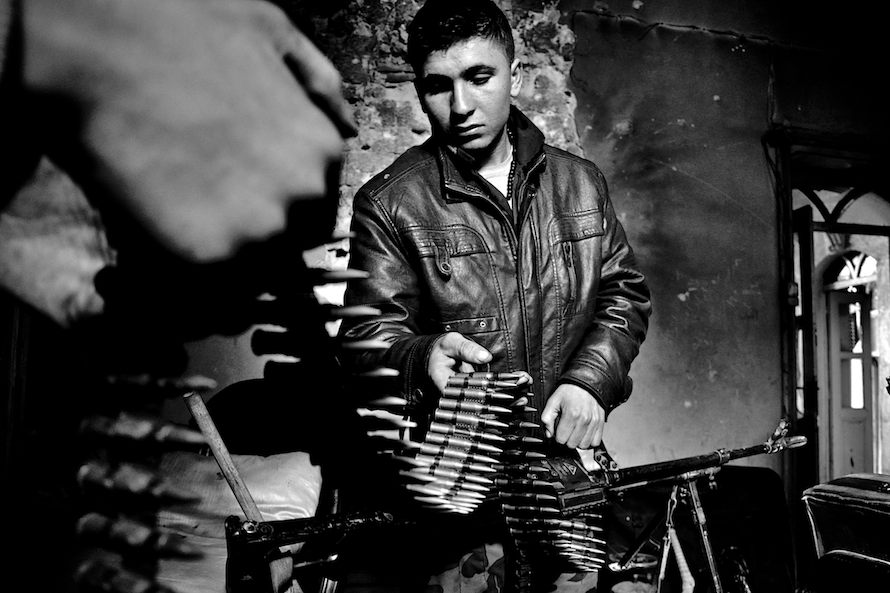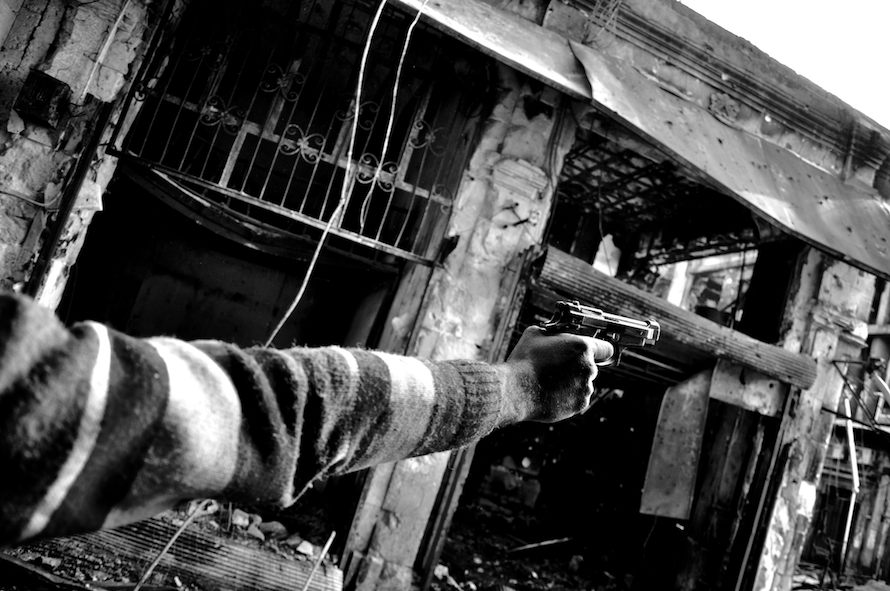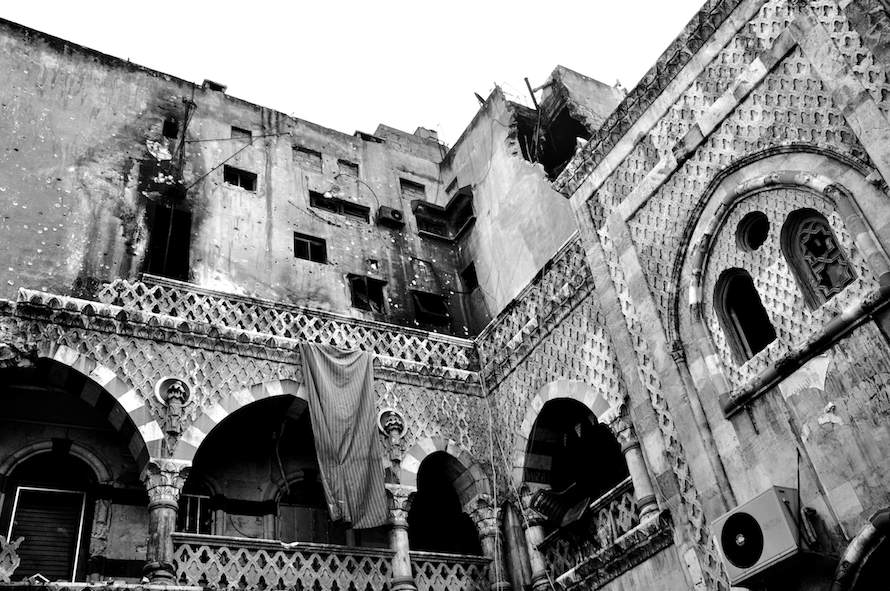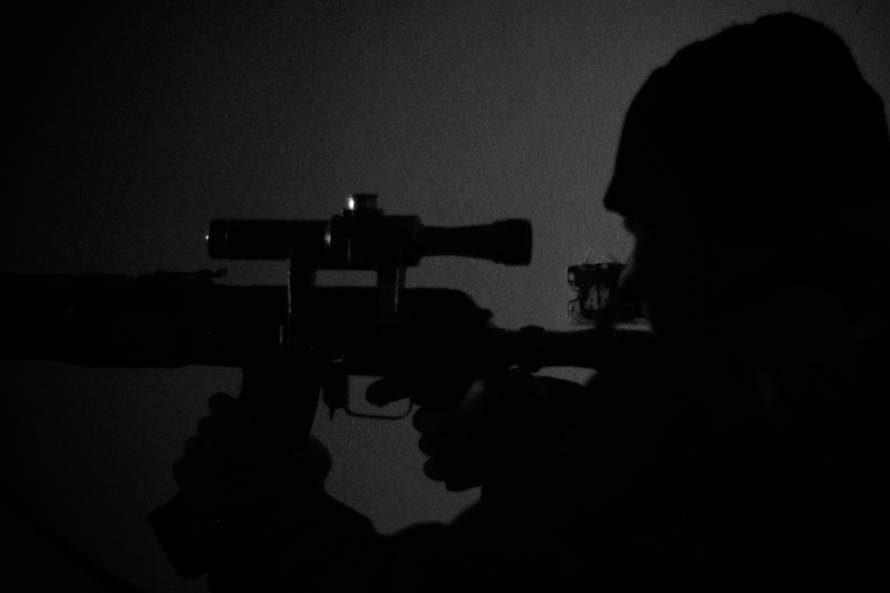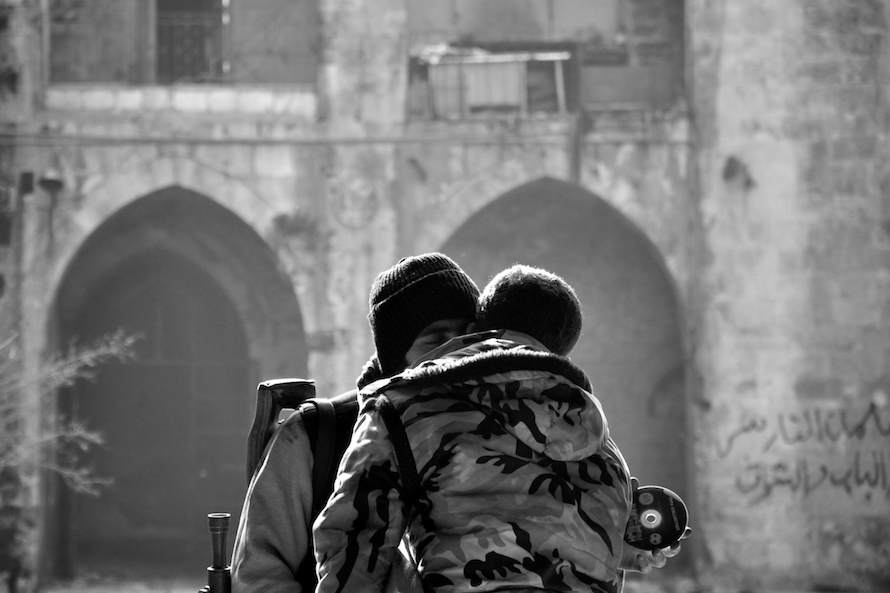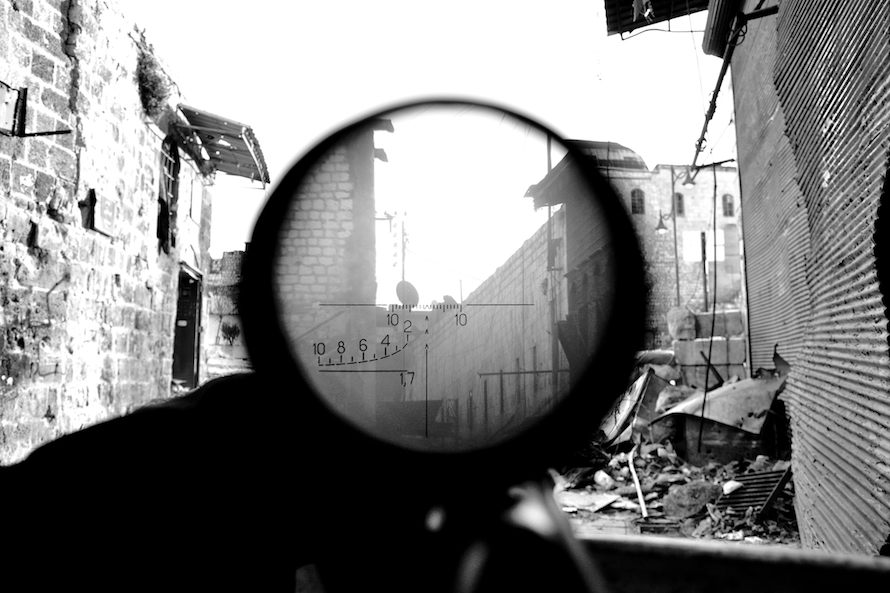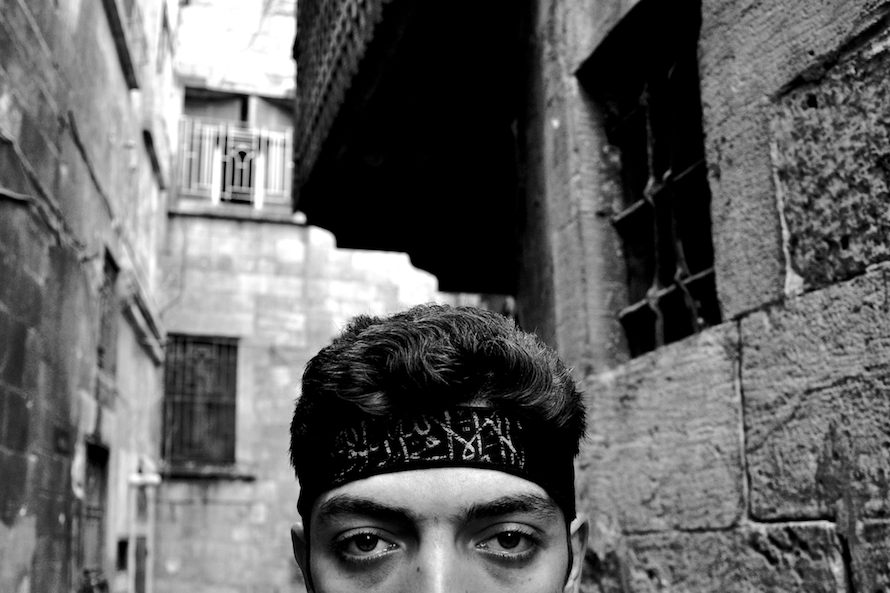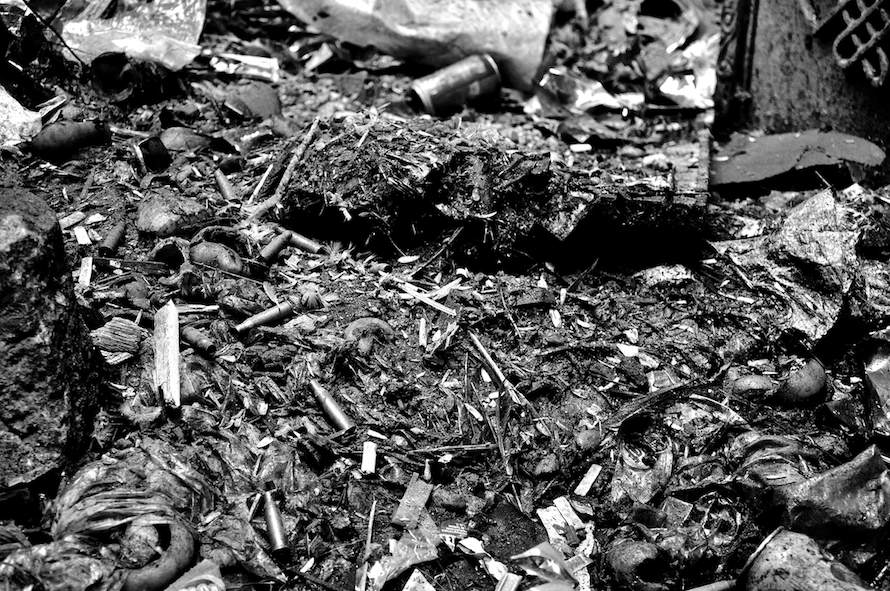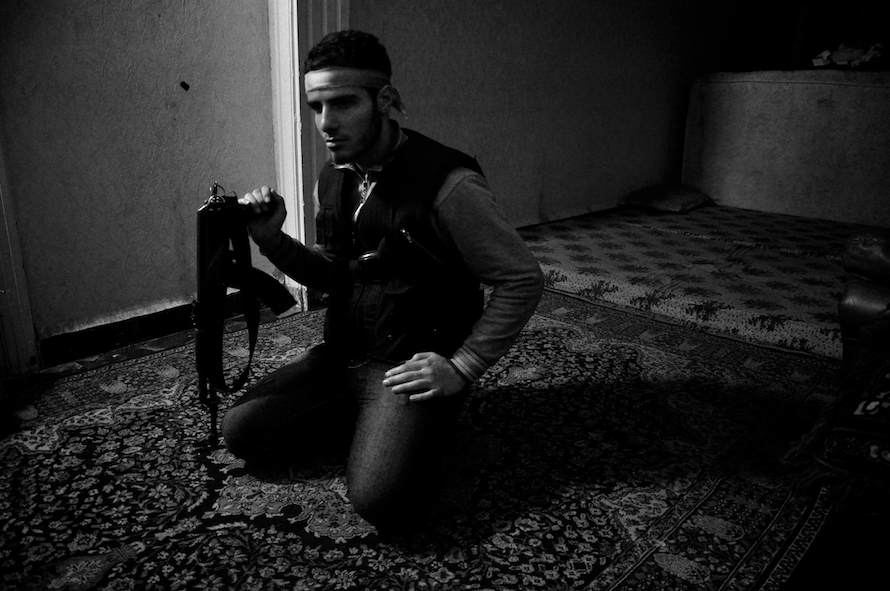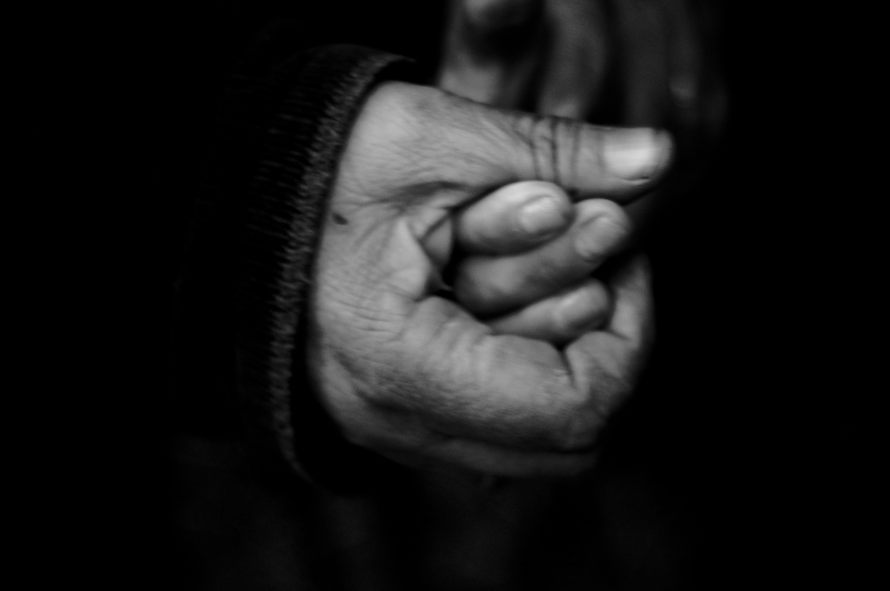What did you expect to find in Syria?
Cengiz Yar Jr.:I didn’t really “expect” to find anything. I entered with the intent of showing as much of the situation as I could, and aimed for spending as much time as possible with the people at the heart of the conflict. What I did “find” was horrific, definitely among the darkest events I’ve ever been witness to.
TMN:How did you gain access to the Free Syrian Army members you photographed?
CYJ:I worked with locals and explained what I wanted to do. They helped make introductions and it went from there.
TMN:Did you have much interaction with the Assad regime?
CYJ:I did not. The regime is actively suppressing news coming out of the country and has been responsible for the deaths of a number of journalists, both foreign and local, since the start of the conflict in 2011. It’s also suspected that they are behind a number of journalist kidnappings, so I did my best not to make contact with them or announce where I was online while with the opposition, for my own safety. That isn’t to say that working with the regime isn’t possible—there are a number of journalist working on the regime’s side of the war—but it’s very hard to cross back and forth between sides.
TMN:How do the rebels’ families make ends meet?
CYJ:What the Syrian people are going through is unimaginable. People in rebel held areas are making ends meet in whatever way they can. For example, last winter because petrol was so expensive and many of the jobs people had no longer existed, all the trees across Aleppo were cut for firewood. Many families are no longer able to survive in Syria which is why we’re seeing a growing refugee crisis in neighboring countries like Turkey, Lebanon, Jordan, and Iraq.
TMN:Besides essentials, what do you always want in your possession when you’re shooting overseas?
CYJ:I keep my iPhone stocked with music and always have a good set of headphones. Being able to block out gunfire going on a few feet away from you with some B.I.G. or The Black Dahlia Murder is key, also really good for sleeping in dorms with drunk hostel kids on “gap year.” I also always carry extra batteries, local embassy numbers, and a note with my blood type.
TMN:How interested are you in your cell phone’s camera?
CYJ:I shoot more photos on my phone on a daily basis than with any other camera. It’s small, easy to use, and always in my pocket. Mobile photography is really changing our world and I’m excited to see what comes next. I post some of my mobile stuff through my Instagram account and have a gallery of images I shot while in Syria on my site.
TMN:What’s your favorite camera at the moment?
CYJ:Lately I’ve been shooting, maybe too much, on my a Nikon F100. It’s a heavy and old film body, but takes beautiful, crisp photos.
TMN:What is your least favorite aspect of photography?
CYJ:Everything that gets in the way of actually creating stories.
TMN:What image will stick with you longest?
CYJ:I was walking through the makeshift refugee camp of Bab Al Salameh on the Syrian side of the Turkish border and interviewing the people living there. They had all fled from the neighboring cities and towns of northern Syria and were trying to get into Turkey. It was the middle of winter and people were freezing. All the trees surrounding the camp had been cut for firewood and there was little food. Each person had their own stories of suffering through the conflict that brought them to that horrible place. An older woman beckoned me over to her tent where her invalid grandson was swaying back and forth on the floor. He was barely clothed, mumbling and crying. She shared her story with me, of how her son, the boy’s father, was killed a few days before his wife, the boy’s mother. Of how their house was destroyed in a regime bombing run and that her grandson, sitting on the floor before me, was all she had left. She couldn’t feed him and the few doctors there were in the camp were not prepared to help with the mentally disabled. She had tried to get her grandson across the border and into Turkey but she didn’t have the proper paperwork to get him across legally and didn’t have enough money to pay bribes for smugglers. She sat in the tent, holding her grandson and crying. I took a photo of her hands wrapped around those of her grandson’s. I’ll never be able to forget that.
